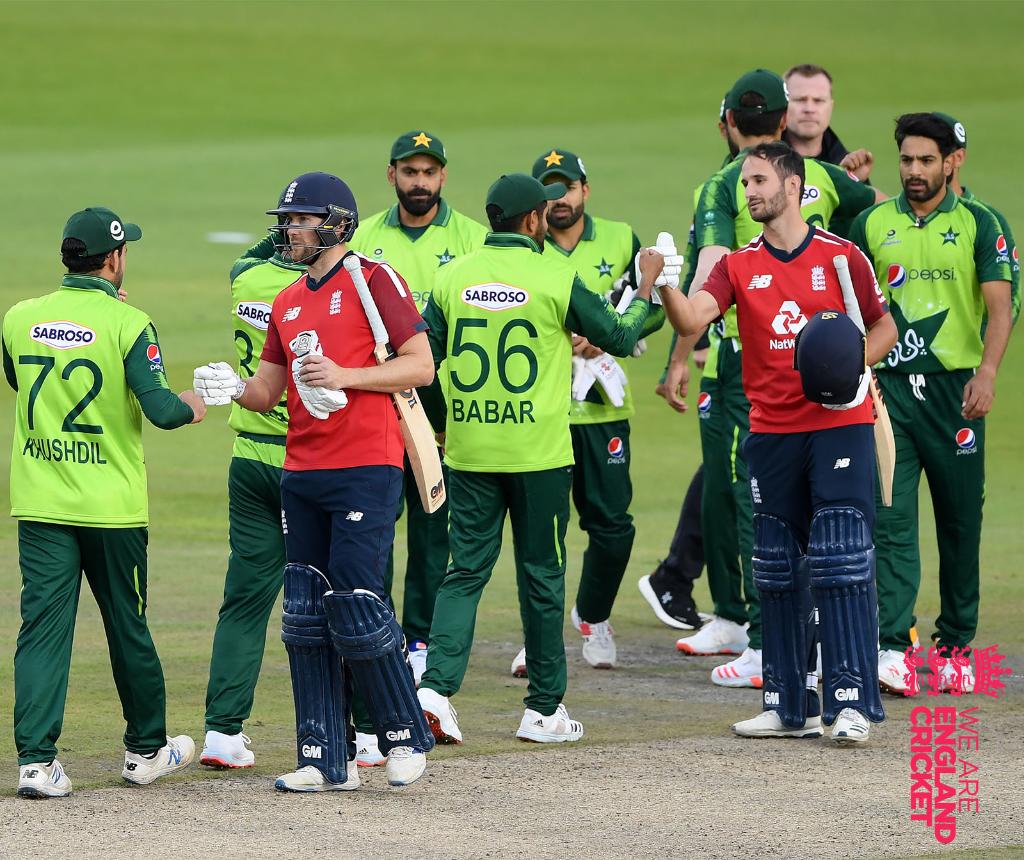Rohit would ‘love’ to play Test series against Pakistan in neutral venue
Bilateral cricket between India and Pakistan has been put on hold since Misbah-ul-Haq’s team last toured India to play a three-match ODI series way back in 2012-13.
Let us not make too much of the fact that a later round of tests nullified results that had earlier been said to be positive, given that well might a third one have upheld the first: Covid-19, after all, is yet to be tamed.

(Photo: Twitter/@englandcricket)
Cricket is quite unlikely ever to tell us if it loses more money when action is frozen because of the Covid-19 pandemic or when scheduled series get scuppered in what could soon be seen as its less than secure bio bubbles.
Even if it deigns to let us in on a secret or two, much in the manner of the affable fiftysomething offering the deer in the zoo a kindly lettuce, a lot of the people in or out of their salad days will be quite thankful that England’s tour of South Africa ended before its appointed finish, a few suspected coronavirus infections causing it to be abandoned for the moment.
Let us not make too much of the fact that a later round of tests nullified results that had earlier been said to be positive, given that well might a third one have upheld the first: Covid-19, after all, is yet to be tamed. England, who had earlier hosted a few series in what is euphemistically described as controlled isolation, would probably have gone home a little doubtful of the efficacy of the newnormal procedure, obliged as they were to deal, with strong denials, the charge that they had not lived up to the requirements of South African coronavirus protocols.
Advertisement
So far so bad. Over in New Zealand, a rapid rise in the number of infections among a purportedly excitable lot of Pakistani cricketers might have led to just as bad a situation, if not worse. And then, the rules of living in the bubble came to be enforced so strictly that the visitors were left wondering aloud if they did not get even to tune up, how they would play.
A very, very valid point, that, and, apart from hinting at some vulnerability inside the putatively foolproof captivity, the goings-on, contrasted with the South African situation, also highlighted a certain lack of administrative leadership in the game. Why must sport carry on like business as usual when people are still dying of the disease?
Does the entire, elaborate and in-camera arrangement not look pathetic in the absence of fans in the stands? What if fissures in the fabric of the supposedly hermetically sealed sanctuary ~ many cricketers consider it incarceration ~ result in a loss of life?
What about the widely voiced complaint about the psychological damage cricketers suffer inevitably inside the luxurious prison? These are questions for the International Cricket Council to answer but, monomaniacally pursuing revenue, it lets everything else drift.
The South African situation showed, however, that cricket was taking too much for granted, and as fresh series, here, there and everywhere were planned and announced, the world could only send up silent prayers for it to dawn on officialdom that being cavalier, and getting away with it might not be the story every time it is written.
Advertisement